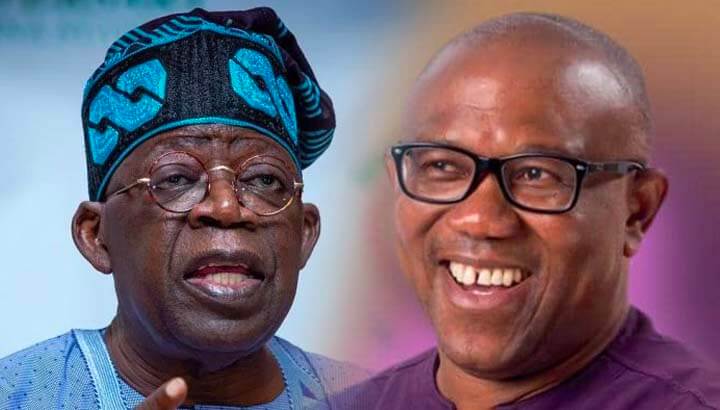
The Labour Party’s presidential candidate in the 2023 election, Peter Obi, has strongly criticized President Bola Tinubu’s administration over its handling of Nigeria’s economy, accusing the government of implementing ineffective policies that have exacerbated the country’s financial woes.
During an interview on Arise News Prime Time on Tuesday, Obi, who previously served as the governor of Anambra State, expressed his dissatisfaction with the economic strategies employed by Tinubu’s government. He particularly faulted the decision to float the naira without a corresponding increase in productivity, arguing that such a move has worsened economic instability rather than fostering growth.
Obi also raised concerns over the country’s rising debt profile and the escalating cost of debt servicing, which, according to him, now exceeds budgetary allocations for critical sectors like healthcare and education. He asserted that the government’s failure to manage its finances effectively has placed a significant burden on the nation’s economy.
“The current administration inherited a debt of about ₦17 trillion, and within two years, it has skyrocketed to over ₦170 trillion,” Obi remarked. “Meanwhile, the cost of debt servicing now surpasses the budgets allocated to essential services such as healthcare and education. This is simply unsustainable.”
Highlighting what he would have done differently, Obi stated that if he were in power, Nigeria would have seen substantial economic improvements within two years. His strategy, he explained, would have centered on boosting productivity and fostering a self-sustaining economy rather than relying heavily on borrowing.
“If I were the President, we would have seen significant improvements in key areas within two years. I would have prioritized investment in productivity, ensuring a more resilient and thriving economy. You can make a difference in two years,” Obi asserted.
He further criticized the government’s fiscal policies, noting that the high-interest rates under Tinubu’s administration have stifled business growth. According to Obi, the inability to manage debt efficiently has created an economic environment that is hostile to businesses and investors.
“We are in a country with mounting debt and little to show for it. The rising interest rates have made it difficult for businesses to survive, let alone expand. A government that prioritizes economic stability should focus on reducing the cost of governance and ensuring that borrowed funds are strategically invested in critical sectors,” Obi emphasized.
Turning his attention to the state of Nigeria’s healthcare and education systems, Obi decried the deplorable conditions of primary healthcare centers and schools across the country. He claimed that 70 percent of primary healthcare centers are non-functional, leaving millions without access to basic medical services.
“If I were in charge, fixing our primary healthcare centers and schools would be a top priority. These are fundamental to national development, yet they remain neglected,” he said.
Obi also called for greater accountability in governance, stressing that true leadership requires direct involvement and responsibility. He criticized what he described as a “delegated leadership style” within the current administration, arguing that a hands-on approach is necessary to address the country’s challenges effectively.
“It is not enough for presidential aides to be the ones actively engaged. Leadership is about having the vision, the energy, and the competence to drive meaningful change. You cannot delegate the core responsibilities of governance—you must be actively involved,” Obi stated.
He concluded by urging President Tinubu and his administration to adopt a more proactive and transparent approach to governance, emphasizing that Nigeria’s economic survival depends on decisive leadership and well-implemented policies.





